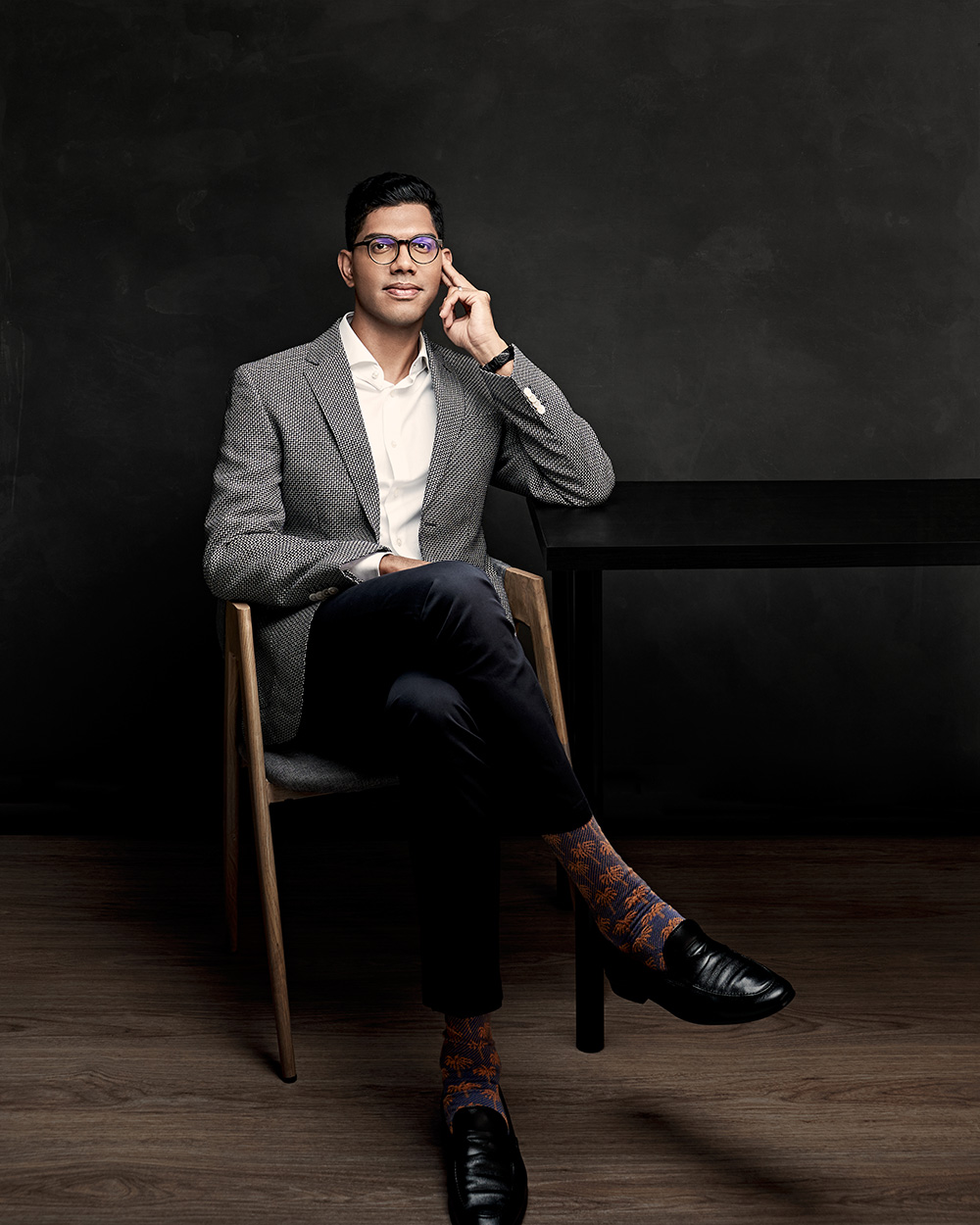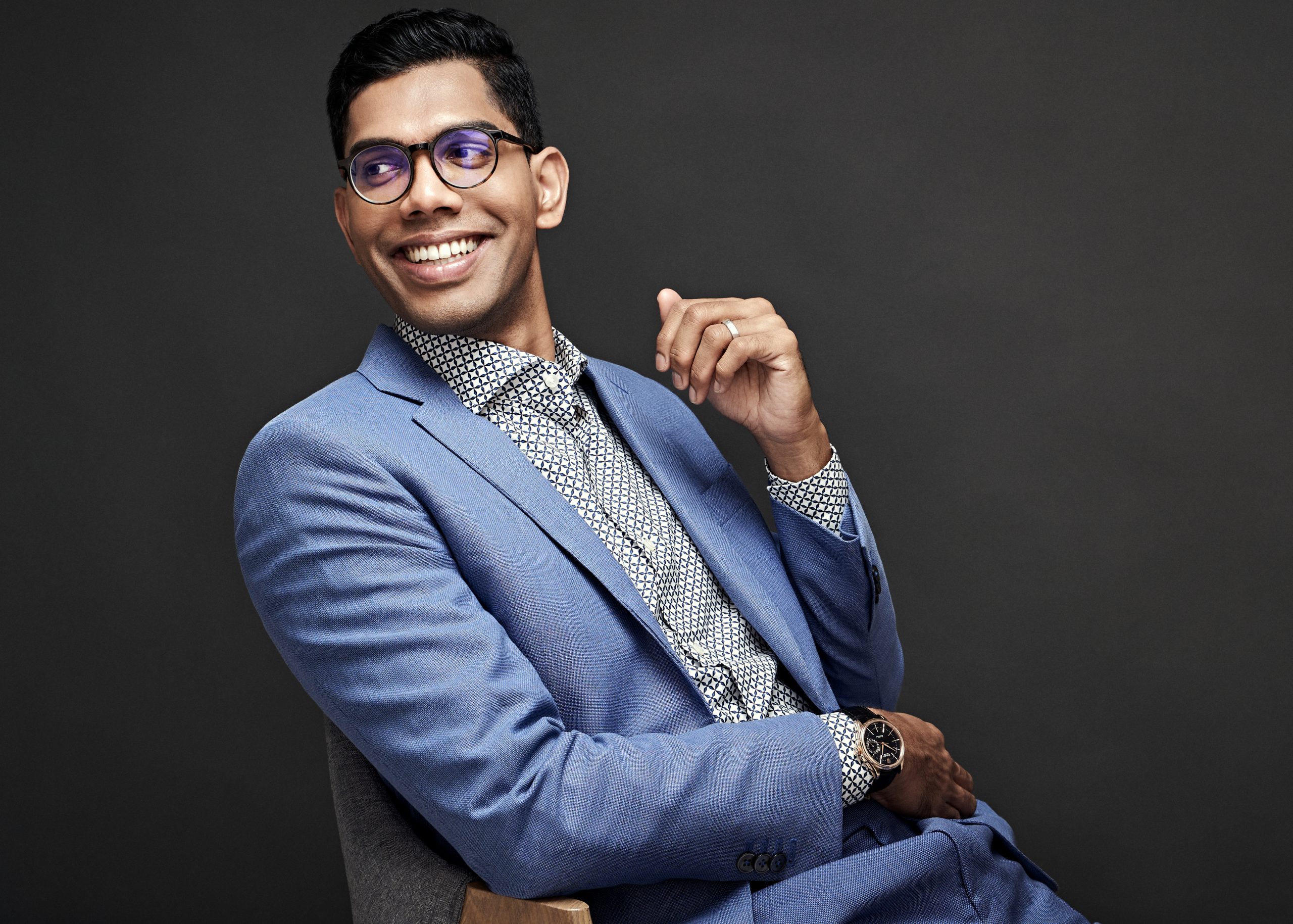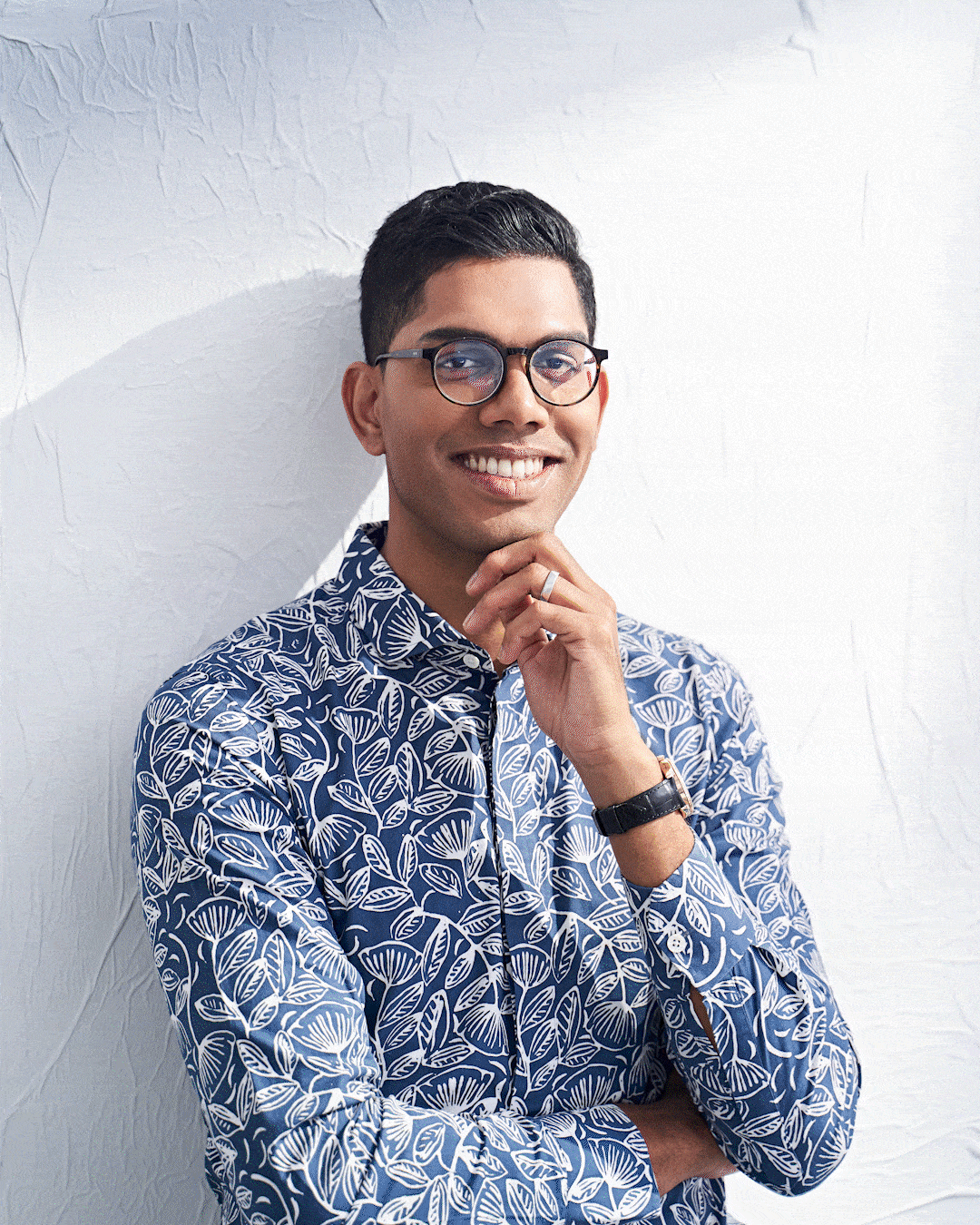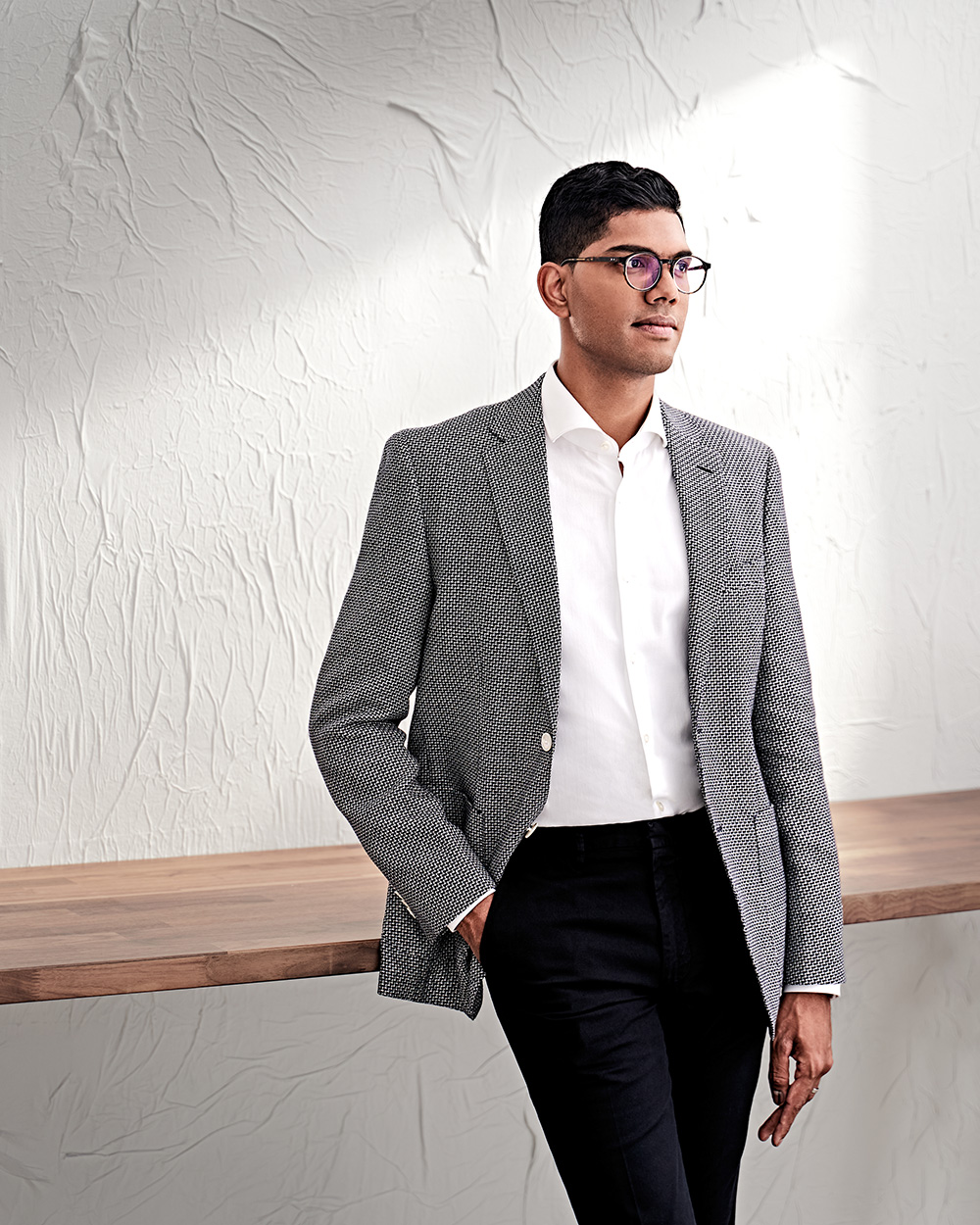On his first day at work as Group CEO of Berjaya Corporation, Jalil Rasheed was the first to come clean in the company town hall meeting that he didn’t know everything.
“I said I’m not going to sit here and say I know everything about risk management, or hospitality,” he recalls telling his new team. “I don’t, that’s why you’re there. My job is to make sure you stay on course and don’t go off-tangent. And if you do, I bring you back and make sure that we are consistently being benchmarked properly with the right people taking us through.”
The admission might come across as jarring to some, especially from someone with over 18 years of experience in senior leadership and investment roles in Europe and Asia. Add to that the expectation from Jalil’s latest appointment as CEO of Malaysia’s largest state investment fund Permodalan Nasional Berhad (PNB) right before this, a role he took on as the youngest person to ever helm the role at 37 years old.
Yet, what people don’t realise is that those are words only someone of his experience – nothing less – is able to muster. They are a testament to his understanding of the system and accumulated experience in leading teams to work at their optimised capacity, grounded by a self-awareness that no one – not even the CEO – can possibly know everything.
“You need to be open to taking ideas from everyone because you don’t know everything,” he tells. “I don’t know.”
His honesty is refreshing, and one that has gotten him far, if track record is anything to go by. Unveiled by this transparency, Jalil Rasheed, first non-family member appointed to lead Berjaya Corporation, is showing a new generation of youths his brand of leadership, one that is quiet and calm but hits hard where it needs to get the job done.

Honesty, chance and a calling from home
Jalil’s honesty was at play from the very start of his career. After graduating with a Bachelor’s in Accounting & Finance from the University of London, he applied for a graduate trainee role at Aberdeen Standard Investments, a company that he admits he “knew absolutely nothing about” at the time.
“I remember one of the questions during the interview was, ‘what do you know about fund management?’, and I said I actually have no idea, that’s why I’m applying for this job. I think they appreciated the honesty and gave me the job,” he shares nonchalantly.
He didn’t just get the job – he was the only candidate outside of Singapore and London, the company’s biggest pools of recruitment to be hired. The trainee programme took him to London, Singapore and the United States as he did his four-month rotation, before he finally settled on London as his base upon graduating, choosing to specialise in investments.
In that role, he took on the world with even more fervour, travelling and learning from cultures and business organization in Latin America, Eastern Europe, Africa and beyond. When the firm acquired a business in the United States, he raised his hand to be transferred there and moved up from overseeing emerging market investments to handling corporations.
It was an opportunity for learning that thrilled him to the bone. “My job was to look for investments so I spent a lot of time with CEOs and industry practitioners, trying to gather as much information and then decide whether we want to invest in them,” he says. “A lot of that involved assessing people and their character.”
By then, he had reached the age of all of 26, and that was when Asia – in particular, home Malaysia – came knocking. The firm set up headquarters in Malaysia and he was picked to be the CEO to lead the equities team in both conventional and Syariah investment. He would also go on to found Aberdeen’s global shariah business and build its retail, wholesale, institutional and investment management platform. Thus began his CEO journey of an international organisation, all at 26.
“I thought it was an amazing opportunity,” he says. “I had no idea how to run a business. I had spent the last 5 years analysing how businesses are run but have never ran it myself. My bosses were very supportive, they said they’re there to help me.”
Over the next 10 years, he would help grow the firm’s many arms across regions of Japan and Indonesia. All good things come to an eventual end and he parted ways to move to Singapore for a role with Invesco to still do investment management but with businesses across Southeast Asia, India and Australia.
Home came calling once more with the opportunity to preside as Group CEO of Permodalan Nasional Berhad and lead the country’s largest fund management company. It was an opportunity Jalil took and counts as “the biggest privilege life could accord me” to this day, despite it being the shortest of his professional stints.
“It’s just an absolute privilege,” he expounds. “This was a government linked firm that traditionally had always appointed people within the same circle. I was the first one outside of it and the youngest ever.”
His departure from PNB after only being 10 months in was one fraught with speculation but Jalil returns to his candid honesty to counter them.
“I left after 10 months because the circumstances changed in the job, drastically,” he tells “It was not the same brief I had taken the job on anymore. The shareholders changed, they had a different direction on what they wanted to do.”
Briefing a new Berjaya Corporation
It was while Jalil was readying his family to move back to Singapore when a friend set up a meeting between him and Tan Sri Vincent Tan, founder of Berjaya Corporation. A lunch turned into a weekly meet up, where the businessman-investor would constantly pick Jalil’s mind on work predications as well as, to Jalil’s delight, football strategies for his football teams.
Little did Jalil know that it would lead to a job offer. In fact, he turned it down twice when it came before Tan Sri Vincent convinced him by means of a good old concerns list that he checked off so Jalil would stay and take on the role.
“There are three things that I absolutely love aside from my family: football, cars and motorcycles,” Jalil opens up. “In a way this job has fulfilled two of my dreams – having a luxury sports car business and also a football club.”
Jokes aside, Jalil brings his 18 years of specialisation in consumer markets to transform Berjaya Corporation, a diversified consumer group, into a professional, institutionalised and digital savvy firm with clear business focus. While working towards that goal, he also sits as chairman, deputy chairman and board member for a multitude of sub-organisations from Cosway Malaysia and Redtone Digital to Cardiff Football Club and Razer Fintech.
For Berjaya, Jalil has begun the transition of the company’s terminology from conglomerate to global consumer group.
“I thought it’s very important from a communication perspective that we identify what the group is. That anchors you,” he reasons. “Why I say global is because we already operate in 18 countries. I didn’t want people to get the connotation that we were just in Malaysia. We have businesses all across the world.”
Within, he has broken down the business into four verticals – retail (divided further into food and non-food), real estate, hospitality and services (covering gaming, environment and digital).
In the big picture, Jalil is seeking to modernise the family corporation, beginning with the people already on board.
“My brief to a lot of them is to think about how a modern organisation would behave,” he shares. “How would the future human resources look like? And what are the skill sets that we need to be thinking about in our future employees? How does workspace look like in the future?”
Beyond the name and renown of the group, working on Berjaya’s many pillars is work Jalil genuinely enjoys. Therein lies exactly the reason why it brings him all the more pleasure to be leading them into the future.
“I like setting the bar up higher”
Jalil doesn’t subscribe to people being physically in the office. With the world changing in the way and at the pace it has, he really doesn’t see the need for people to be parked anywhere to be able to work.
“You can do a lot of things on your phone now, wherever you are,” he says. “I don’t necessarily stop work when I’m not in the office physically.”
His days begin as early as 6am every day. On rotation, he spends a session with his personal trainer, swimming, running or playing tennis before heading into the office. He doesn’t have breakfast since he practices intermittent fasting so lunch is often his first meal of the day – always work-related so as to clear any meetings with people that he needs to. Long meetings are the bane of his existence so his meetings are notoriously short – never longer than 20 minutes.
“I’ve always told myself to leave an hour or two in my day without any meetings. That’s what I call my thinking time and I think it is very good to reflect,” he shares.
His dinners are early and more relaxed. Although most of them are still work related, they take on a more social tune. “I like the social aspect of work – that I absolutely enjoy.”
Jalil never really stops working. Instead of work-life balance, he’s found more effectiveness in work-life harmonisation where what needs to be done is weaved in seamlessly with what he enjoys. This leaves space and time to do both while appreciating it.
That quiet grace under pressure is one of the key things Jalil applies in his style of leadership.
“For most people who want to become CEO, they don’t really understand there is a certain aptitude needed, that there is a certain regard in order to get there. Not everybody has it and that is perfectly fine.”
Said regard includes a few things, among them the ability to inspire, to make sizeable change with the authority granted to you and, as he has exemplified, to admit when you don’t know everything.
“I always get asked what’s my leadership style. I say style is something that’s unique to an individual. I have a certain view on how certain things should be done. I’m all for equal participation of females. I’m all for modernising work culture. I am all for young people taking on more leadership roles, because I was a beneficiary of that. If my boss didn’t give me the benefit of the doubt, I wouldn’t be here. So I always say that people who have done well at a young age were beneficiaries because someone believed in them. I need to do the same thing,” he divulges.
One of the most important things in finding out whether one has what it takes to be the leader involves taking risks.
“I always say take risks. Don’t always have this dandy view that the path to being CEO means to do a certain set of things. I’ve seen people with flowcharts, it doesn’t work. Take risks by going into an environment that will enhance you, from a skill, character and personality perspective. It may not be in your position of comfort, but that’s what makes you better.”
It’s also important to not be a victim of fearing mistakes. “It is very important to make mistakes,” Jalil says. “I make a lot of mistakes, but the important thing is to learn from the mistakes and grow to become better.”
He references his own career in that regard. “I’ve always been very inspired by people who have that ability to have that vision and follow through, especially when at some point it can seem like the impossible thing to do. When I look at my own career, it’s a lot like that. I took on a lot of impossible roles that people told me won’t work.”
Becoming CEO at 26, leading PNB at 37 as its youngest ever CEO and becoming Berjaya Corporation’s first non-family CEO before he’s even 40 is a stellar track record of impossible roles indeed, one most people consider a pretty far-fetched dream.
“I think if there’s one quality I strive for, it’s to dream,” Jalil says. “It’s achievable. Don’t just look for the easy thing. That’s why a lot of my jobs have people asking me why do I want to put myself through so much pain. Maybe it’s because I like setting the bar up higher.”
Keep up with Jalil on Instagram, Twitter and LinkedIn.
Photography: Edmund Lee from One3Four Studio
Art direction: Anson Siau
Styling: Anson Siau
Hair and grooming: Janice Liew










